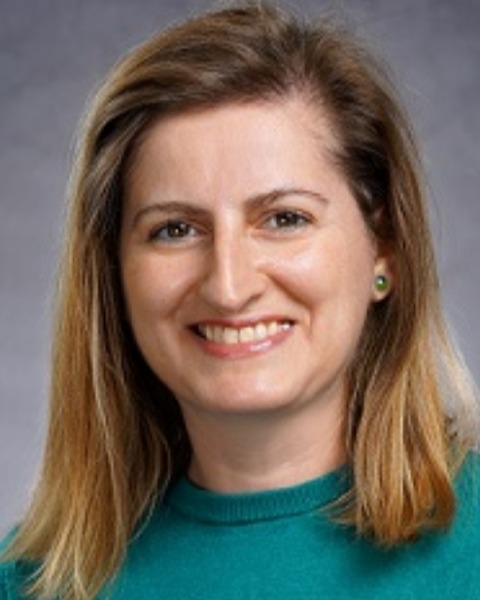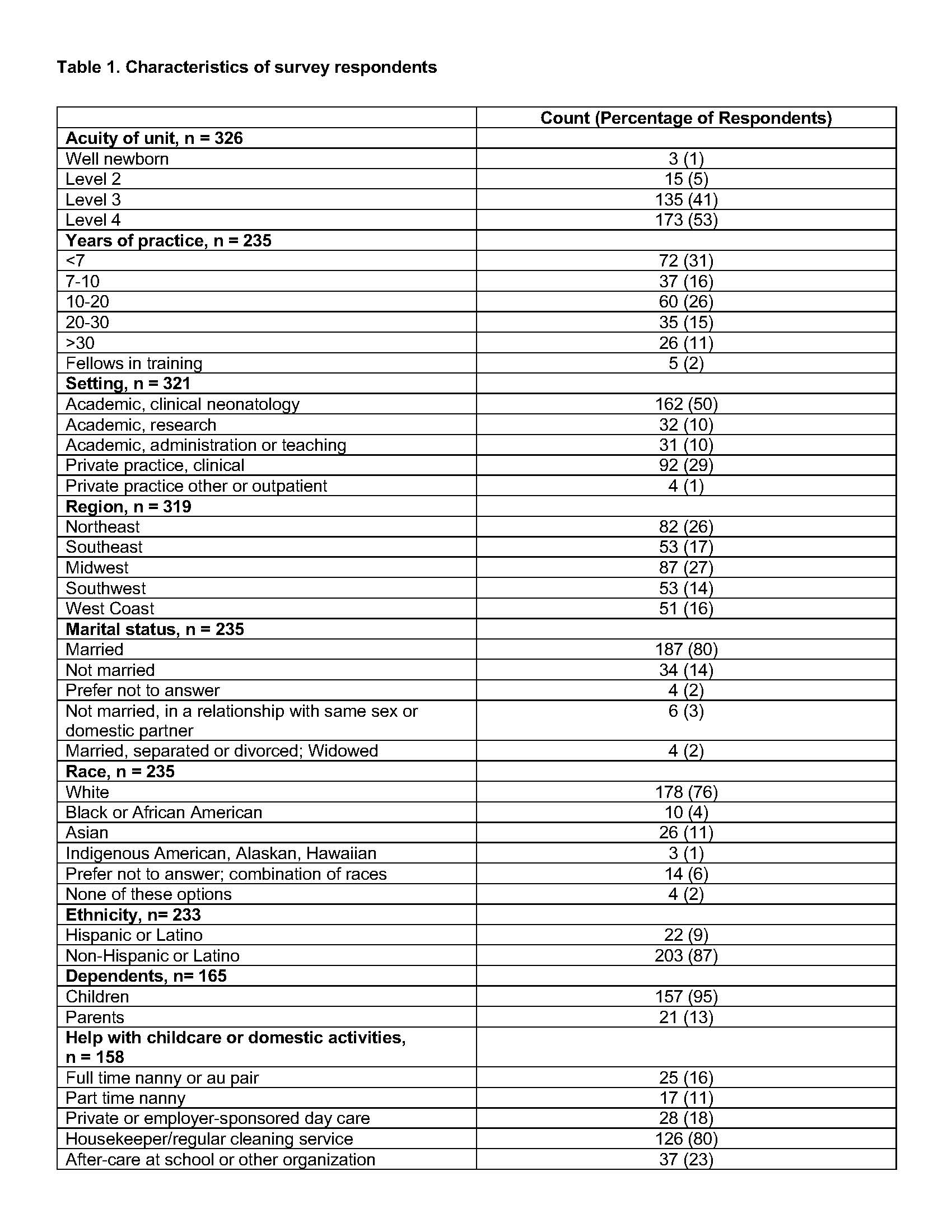Neonatal General
Neonatal General 2
266 - Professional and Personal Wellness Among Women Neonatologists
Publication Number: 266.131

Diana Yanni, MD (she/her/hers)
Neonatologist
Cooper Medical School of Rowan University
Camden, New Jersey, United States
Presenting Author(s)
Background: Promoting wellness is key in combating physician burnout, affecting up to one-third of neonatologists. Women are at particular risk due to moral distress and challenges with work-life integration. Women in Neonatology (WiN) of the AAP Section on Neonatal-Perinatal Medicine supports the professional development, career advancement, and wellness of its members.
Objective: We aimed to assess the subjective feelings of wellness and to determine factors that contribute to professional and personal wellness among WiN.
Design/Methods:
The Wellness sub-committee of WiN created and implemented a survey using Qualtrics survey software to assess 1) demographic factors, 2) practice/institutional wellness program availability and attendance, 3) factors that contribute to feelings of wellness in the professional and personal lives of women neonatologists.
Results:
Demographic information for the 326 respondents is in Table 1. Physician Wellness Programs were present in 57% of practices/institutions, but many WiN did not know when activities occurred or were unable to attend (50% and 40%, respectively). Among those who attended, 15% found social activities, 14% found professional development opportunities, and 10% found meetings to increase physician support most helpful. When queried about subjective feelings of wellness, 64% and 81% of respondents feel well more than 50% of the time in their professional and personal lives, respectively. Leading factors that contribute to professional wellness were flexible work schedules (17%), helping patients (16%), and being compensated fairly (14%). Leading factors in personal wellness were having time to spend with children/family (20%), having flexible work schedules (17%), and exercising regularly (14%). Factors that detracted from wellness were clinical workload/acuity, night call and weekend responsibilities, perceptions of needing to respond to emails, texts, or social media during non-work hours, and administrative workload.
Conclusion(s):
Although most WiN feel well personally, only 2/3 feel well professionally more than 50% of the time. Many practices/institutions offer Physician Wellness Programs, however most respondents are unaware of activities or are unable to attend. Our findings suggest that focusing on flexible work scheduling, clinical care support, fair compensation, and limitations on professional duties outside of business hours may contribute most to wellness among women neonatologists. These data may be used as a resource to guide strategic planning and advocacy initiatives for healthcare leaders. 
